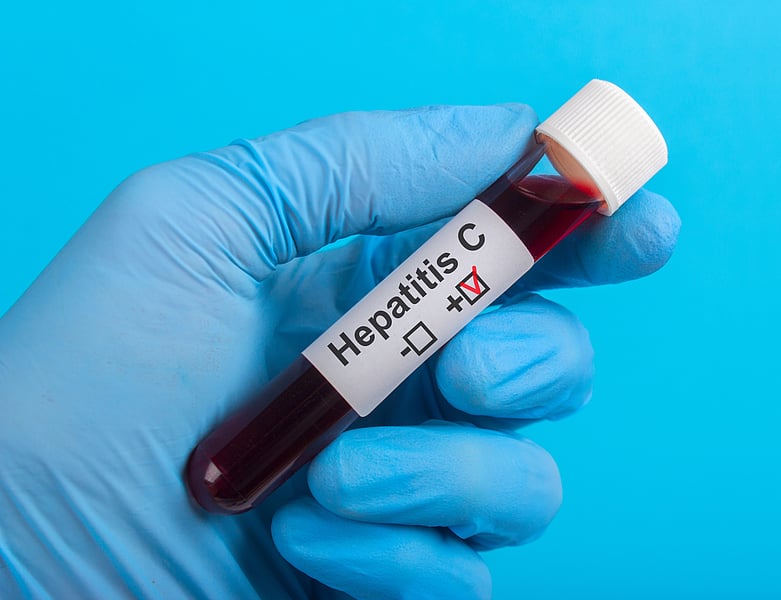Get Healthy!

- Sue Benzuly, RN
- Posted June 12, 2023
There's No Hepatitis C Vaccine, But You Can Still Prevent Infection
Hepatitis C can ruin your liver, and there's no vaccine to prevent it, but you can take steps to lower your chances of infection.
According to the U.S. Centers for Disease Control and Prevention, over 2 million U.S. adults are infected with hepatitis C. The virus strikes the liver and is one of the leading causes of liver transplantation in the United States. When first exposed to the virus, it can remain undetected and cause harm without the individual knowing they are infected. Hepatitis C can result in liver scarring, cancer and death.
While there are vaccines for hepatitis A and hepatitis B, viruses that also affect the liver, there is no vaccine for hepatitis C. Here, you will find information about how you can protect yourself against this disease.
Is there a vaccine for hepatitis C?
Dr. Stacey Rizza answers this question in an article for the Mayo Clinic: "The hepatitis C virus is more variable than hepatitis A and hepatitis B viruses. Hepatitis C occurs in at least seven genetically distinct forms (genotypes) with multiple subtypes. About 60 subtypes have been identified. Different genotypes cause infections in different parts of the world. A global vaccine would have to protect against all variants of the virus."
Another issue with developing the vaccine is the ethical costs and concerns with an animal model that would be used to test the vaccine. Those ethical costs are weighed against the fact that there are antiviral medications that can cure hepatitis C for 95% of patients.
Rizza also noted there is an ongoing therapeutic vaccine trial. This vaccine would help people with chronic hepatitis C by bolstering the body's immune response to fight the infection.
Hepatitis C prevention
The hepatitis C virus is transmitted through exposure to blood from an infected person. According to the CDC, this often occurs from sharing needles, syringes or any other equipment used to prepare and inject drugs.
The Veterans Administration recommends taking the following measures to prevent exposure to hepatitis C:
- Drugs
- If you use drugs, speak with your provider about treatment to stop using drugs or available harm reduction in your area. If you are unable to stop using drugs:
- Don't share any equipment used to prepare or inject drugs, including syringes, needles, filters, water, water containers, cotton or ties
- Use brand-new or clean needles every time. Do not borrow needles or equipment. Get your needles from a pharmacy or needle exchange program
- If you must reuse equipment, mark yours for easy identification
- Use an extra sterile syringe for splitting drugs
- If you must share a syringe, clean it with bleach and sterile water
- Snorting drugs can cause bleeding inside your nose, do not share snorting straws
- Smoking drugs from a pipe can expose you to blood from cracks or burns on lips, so do not share a pipe or use your own rubber stem
- Sex
- Practice safe sex, use a condom, dental dam or other latex barrier, and avoid rough sex
- Receptive anal sex is the riskiest behavior for hepatitis C infection
- Having a sexually transmitted infection places you at greater risk of hepatitis C infection; ensure you are tested and treated, including receiving vaccines for hepatitis A and hepatitis B
- Tattoos and piercings
- Only get tattooed or pierced in regulated studios that display certificates from the state they are located
- Make sure the tattoo artists are licensed
- Needles and ink pots should be single-use, and artists should wear latex gloves
- Prison tattoos and piercings or those done by friends place you at a greater risk
If you suspect you may have been exposed or have symptoms of this virus, seek medical care. According to the Mayo Clinic, symptoms include fatigue, nausea, yellowing of the skin, weight loss, confusion, swelling and itchy skin, among others.
The Veterans Administration lists the following free resources:
- Free, fast, and confidential hepatitis C testing from the CDC
- Drug treatment centers, or 1-800-662-HELP (4357)
- Needle exchange programs Note: This list may not contain all community programs. Ask your provider if you need help finding a location close to you
- Protecting yourself and others when using drugs
- Instructions for cleaning injection equipment


